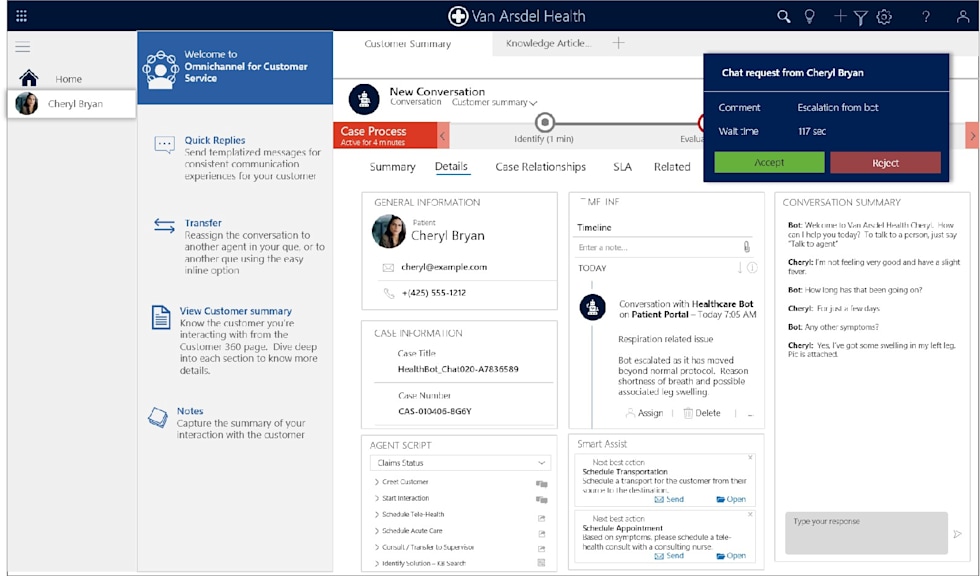In our previous blog post, we covered some of the new features that announced for Microsoft Teams at Build 2020. Microsoft Build is a developer-focused conference, intending to leave attendees with action-ready new feature skills. Due to the COVID-19 pandemic, this year’s conference moved online, and it focused on – what else? – the cloud.
Microsoft Azure is the second-largest cloud service in the world, following Amazon Web Services. Google is a strong third. Microsoft expects significant growth ahead in this sector and is looking to increase market penetration with a new set of vertical cloud offerings. Cloud for Healthcare is the first of these upcoming launches and is one of the most significant announcements to come out of Build conference.
What is a vertical cloud offering?
Techopedia refers to it as a “cloud computing solution designed specifically for a business sector (vertical) or model. Providers tailor vertical cloud offerings to specific industries rather than having one general, all-purpose cloud offering.”
Up until now, Microsoft has mostly had general, all-purpose offerings. As a business or partner, you know that different industries have unique requirements. Vertical solutions are a one-stop-shop, addressing these requirements with a start-to-finish solution. Healthcare has been a primary object of focus during 2020, and that only continues with this offering.

Key Elements of Microsoft Cloud for Healthcare
- Enhancing patient engagement
- Empowering health team collaboration
- Improving operational and clinical data insights
- Cloud built on interoperability, security, and trust
- Extensible healthcare partner ecosystem
These goals are accomplished by bringing together Microsoft products like Teams, Power Automate, Power Apps, Power BI, Azure IoT, and Dynamics 365. Teams has already become a leading choice for healthcare organizations, being used to conduct virtual visits with patients.
The capabilities of these platforms are already here at a basic level – Cloud for Healthcare just brings the ecosystem together in a focused way. An example would be the new patient portal, which offers the ability to pay bills, set reminders, and book appointments in concert with Dynamics 365. The patient portal is seamlessly integrated with Teams, using a new Bookings component for scheduling. This setup includes an appointment email with easy access to join the virtual visit on any device.
Included are specific workflows, APIs, connectors, and a unique Common Data Model (CDM). This data model is a set of predefined entities used to store and interact data. Cloud for Healthcare has entities, forms, and fields geared toward the healthcare experience. These are just some of the nitty-gritty details.

What's next?
Microsoft Cloud for Healthcare is currently in public preview, and it will come with a six-month free trial period. The good thing is that Microsoft is only getting started with vertical cloud offerings – Cloud for Healthcare is the first of many other industries that slated for future vertical cloud offerings.
Some of these include telecommunications, manufacturing, energy, education, insurance, banking, etc. Addressing the needs of these industries will set Microsoft apart as a cloud provider. As of today, there are no clear indications on which industry will be next in line.
There will always be a need for additional tailoring of these solutions – not every healthcare organization (or business, or school, etc.) is the same. That’s where Dynamic Consultants Group can step in as your Microsoft partner. We have years of experience across many industries and can help fill the gap between available features and your needs. We have a team of consultants, architects, Power Platform makers, and developers to tailor the Microsoft 365 platform for your organization. We can also help with the implementation process, train employees, and produce documentation tailored to your needs. Contact us today to see how we can help empower you and your team.



